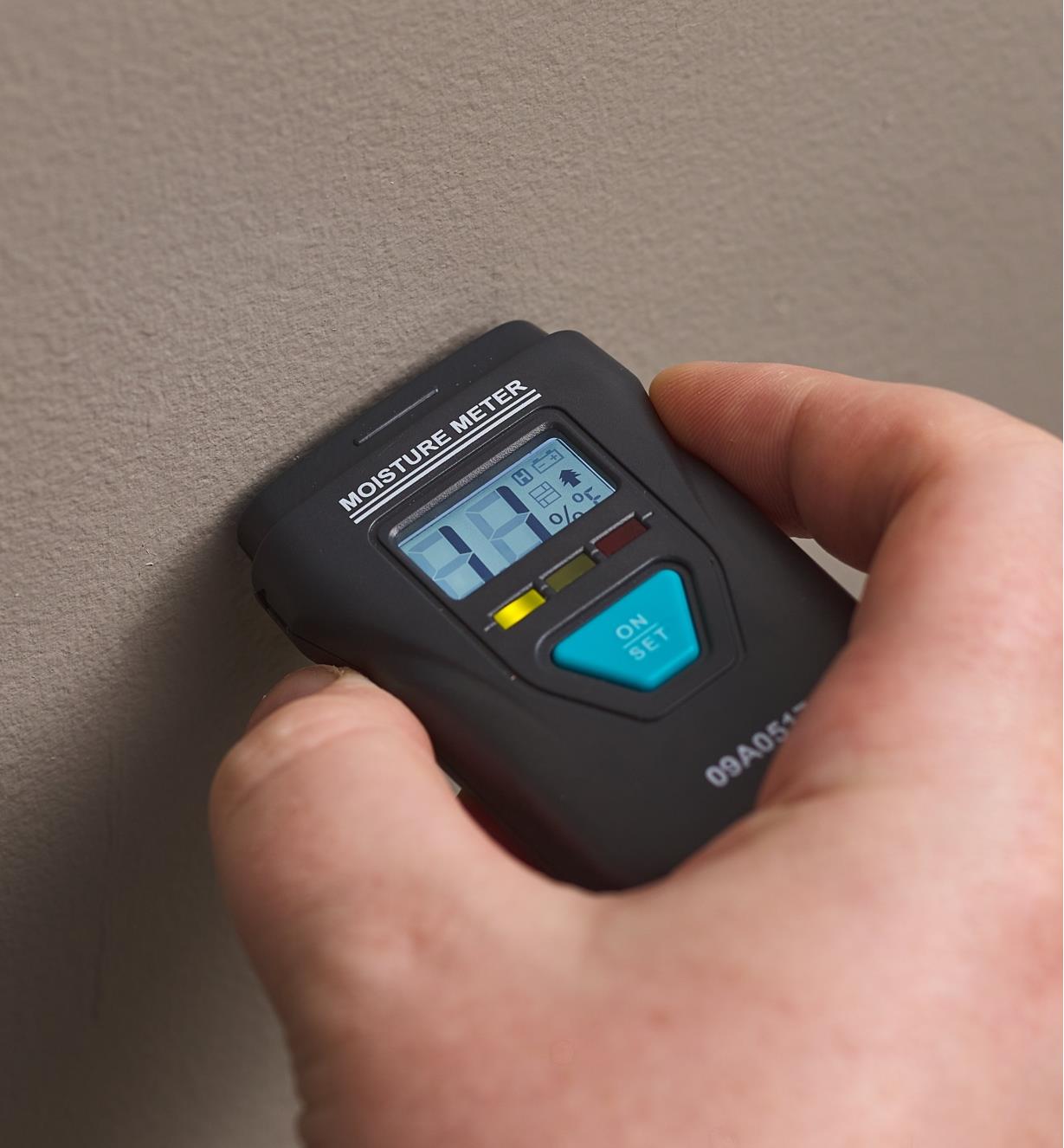The Ultimate Overview to Moisture Meters: A Comprehensive Review and Just How They Can Conserve You Cash
Dampness meters offer as crucial devices in identifying and monitoring moisture material in products, aiding in protecting against pricey problems and guaranteeing the quality of products. Comprehending the nuances of different types of dampness meters, their applications, and the prospective cost-saving advantages they offer can be a game-changer for companies and specialists alike.
Types of Wetness Meters
One typical type is the pin-type dampness meter, which gauges the electrical resistance between two pins put into a material. Pinless moisture meters, on the various other hand, use electromagnetic sensing unit plates to scan a larger area without triggering damage to the product's surface area.

Infrared dampness meters gauge the thermal residential or commercial properties of a product to determine its wetness web content non-invasively, making them beneficial for applications where pin or pinless meters might not be appropriate. Understanding the various types of moisture meters available can assist markets select the most ideal tool for their particular moisture dimension needs.

Advantages of Making Use Of Moisture Meters
Wetness meters use vital benefits in precisely examining and keeping track of dampness degrees in varied materials and environments. One of the key advantages of making use of moisture meters is the prevention of possible damage triggered by excess wetness.
Furthermore, using wetness meters can bring about raised energy effectiveness. By recognizing areas with high wetness degrees, such as leakages or bad insulation, adjustments can be made to boost energy conservation and minimize energy expenses. In farming setups, wetness meters play a critical duty in maximizing plant yields by enabling farmers to keep an eye on soil moisture degrees and make notified irrigation choices. On the whole, the advantages of making use of wetness meters span across different industries, supplying cost-effective solutions and advertising much better quality assurance methods.
Just How to Choose the Right Moisture Meter
Selecting the appropriate moisture meter entails thinking about crucial variables such as material compatibility, measurement array, and calibration accuracy. When picking a dampness meter, it's necessary to make certain that the meter appropriates for the certain product you will certainly be testing. Different materials have varying electric homes that can affect wetness readings, so choosing a meter designed for your material is essential for accurate results. Furthermore, take into consideration the measurement variety of the dampness meter. Guarantee that the meter can identify wetness degrees within the array required for your applications. Calibration precision is one more vital factor to remember. Choose for a dampness meter check out here with trustworthy calibration to guarantee regular and exact readings. Some meters might need routine calibration modifications, so recognizing the calibration process is essential. By carefully assessing these aspects, you can choose a dampness meter that fulfills your needs and supplies accurate dampness dimensions for your projects.
Proper Methods for Moisture Meter Use

Price Financial Savings With Wetness Meter Applications
Just how can the tactical usage of moisture meters lead to considerable expense financial savings throughout various sectors? In the agriculture market, dampness meters help in identifying the optimum time for collecting plants, stopping over-drying or excess moisture that can impact the last product's quality.
In a similar way, in construction, wetness meters help prevent costly damages by discovering dampness levels in structure materials, such as timber or concrete, which can bring about architectural concerns otherwise dealt with quickly. By identifying issue areas early on, specialists can take corrective measures to prevent considerable repair work or substitutes, ultimately saving money and time.
Moreover, in the food handling market, wetness meters check my site are important for monitoring product quality and making sure conformity with safety regulations. By accurately measuring wetness web content in food, makers can stop spoilage, preserve freshness, and lower waste, causing substantial price savings. In general, the strategic application of moisture meters is a useful financial investment that can result in significant price decreases moved here and enhanced effectiveness across different industries.
Conclusion
Finally, moisture meters are valuable tools for measuring and detecting moisture degrees in different products. By making use of the best wetness meter and adhering to appropriate techniques, customers can properly stop expensive damages triggered by excess dampness. Investing in a quality wetness meter can cause considerable expense savings in the lengthy run by recognizing potential problems early and making it possible for timely remediation. Ultimately, wetness meters are essential instruments for preserving the integrity and longevity of structures and products.
Dampness meters offer as essential tools in finding and monitoring moisture material in materials, assisting in protecting against expensive damages and ensuring the high quality of items. Infrared moisture meters gauge the thermal residential or commercial properties of a material to establish its moisture material non-invasively, making them helpful for applications where pin or pinless meters might not be ideal.Moisture meters supply very useful benefits in properly keeping an eye on and assessing dampness degrees in diverse products and environments. In agricultural settings, wetness meters play a crucial role in optimizing plant returns by making it possible for farmers to keep track of soil wetness degrees and make educated irrigation decisions.In verdict, dampness meters are important tools for measuring and finding moisture levels in various products.